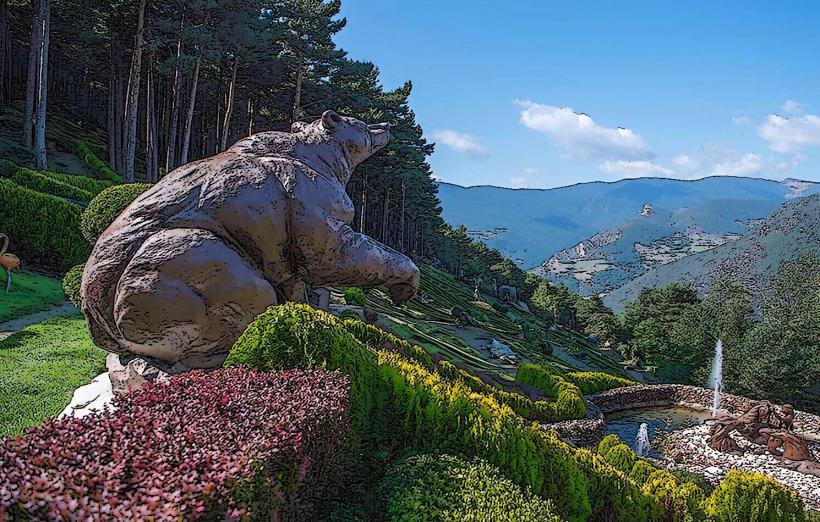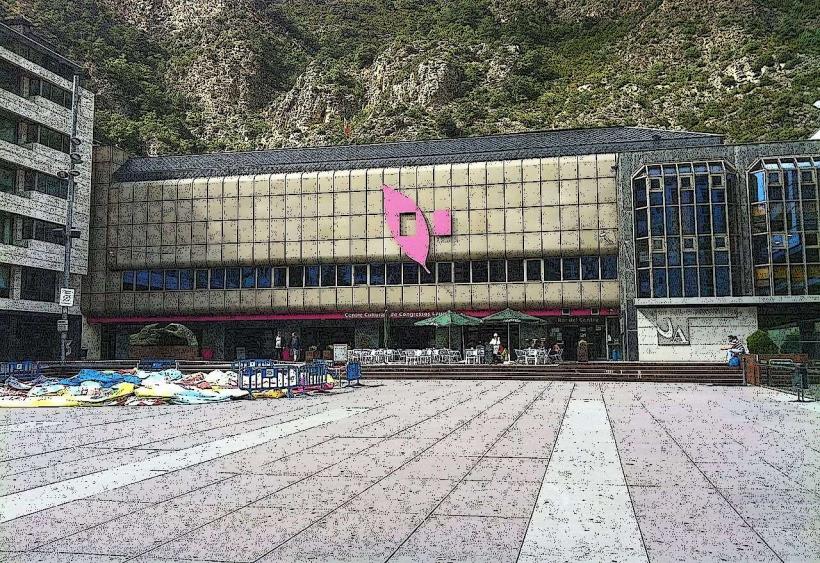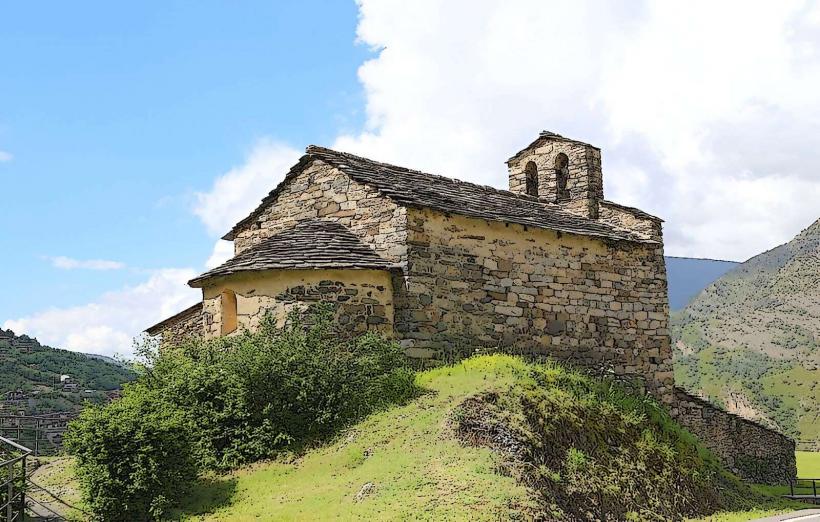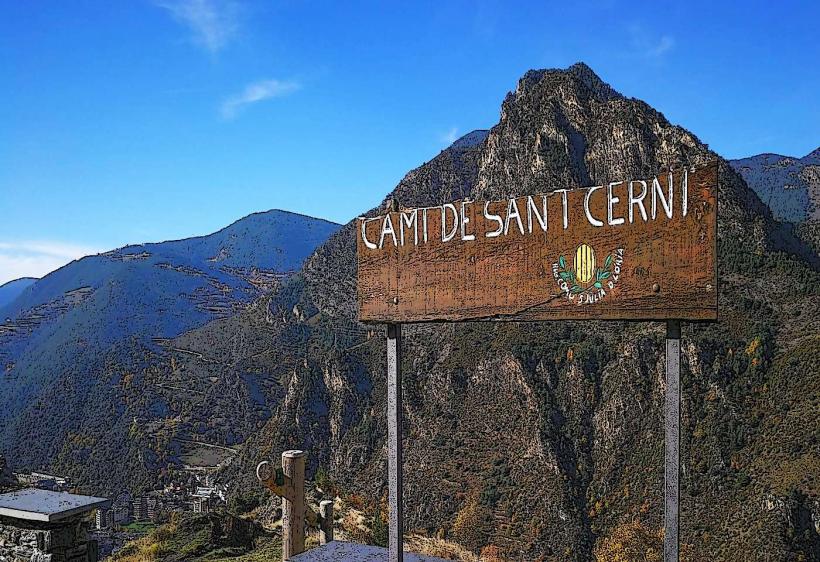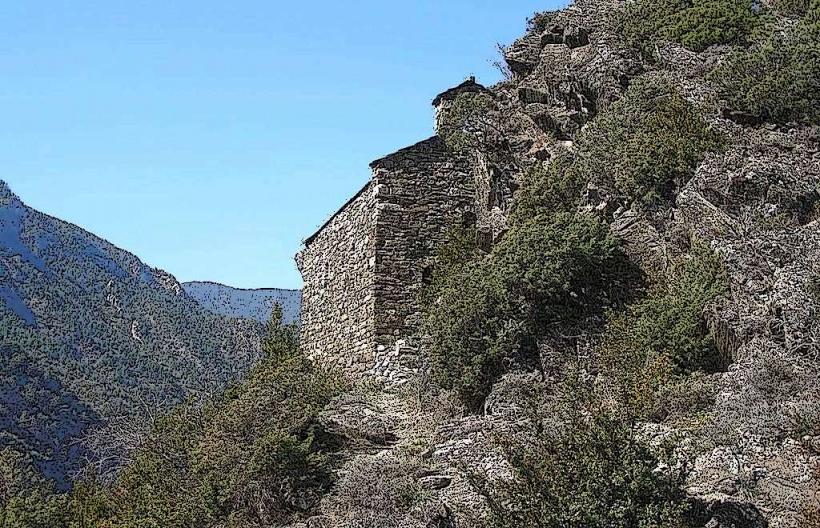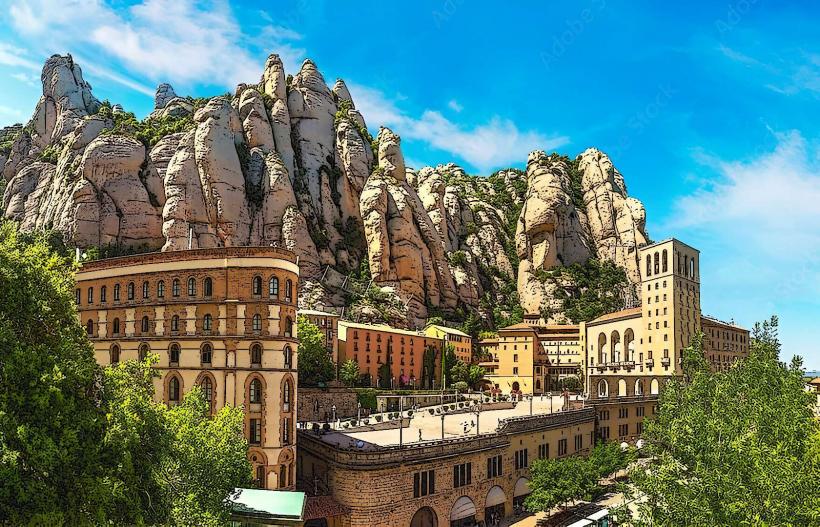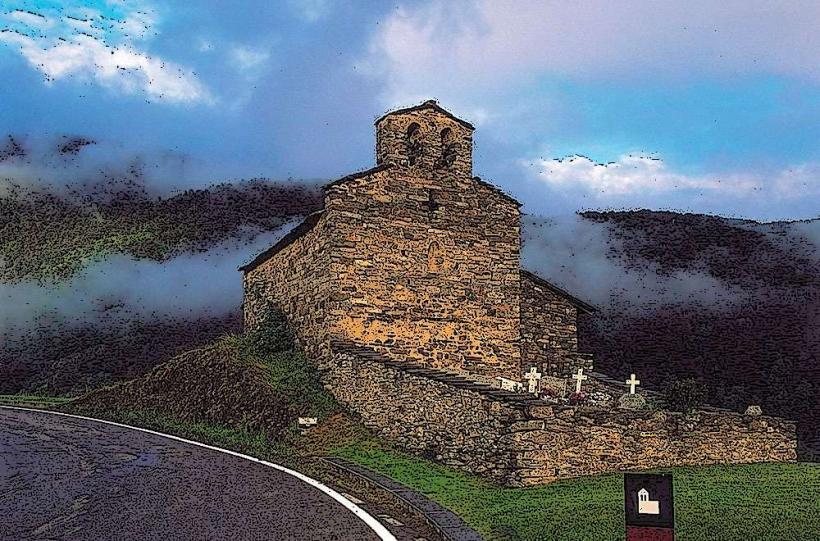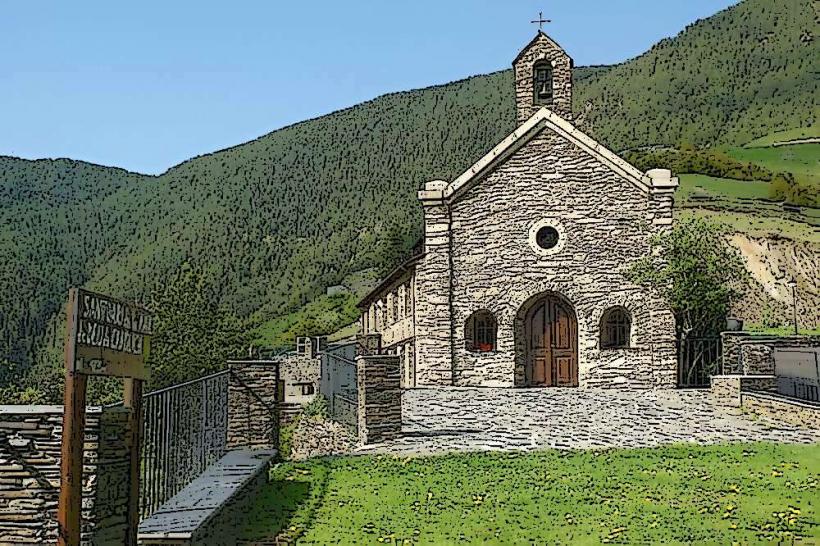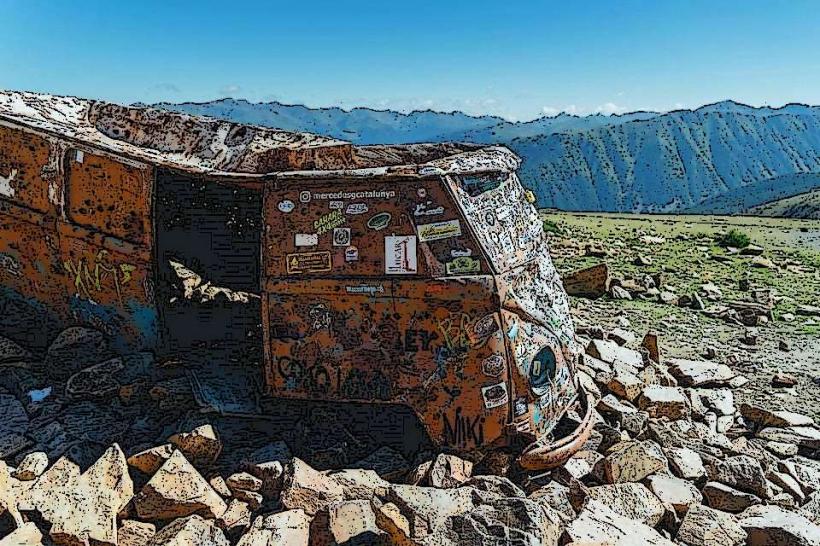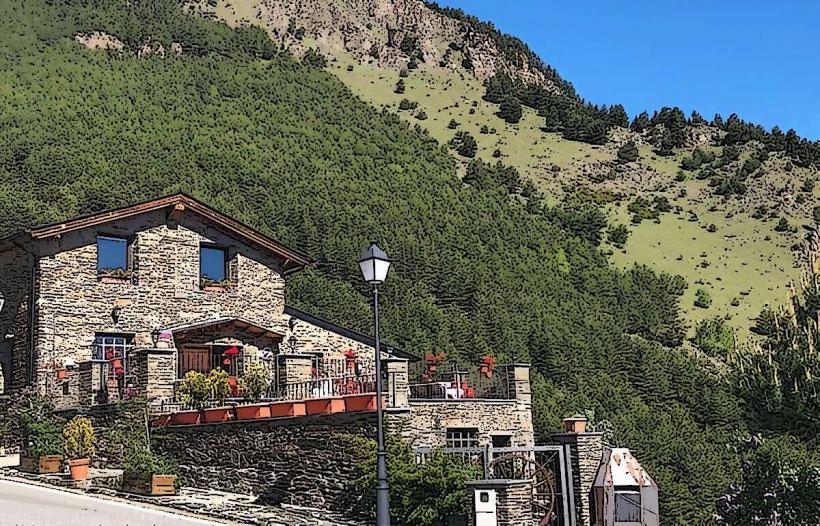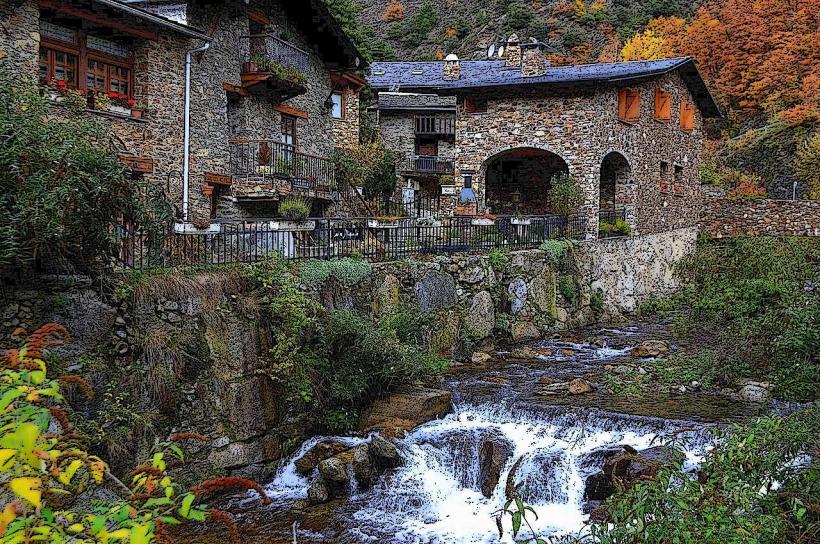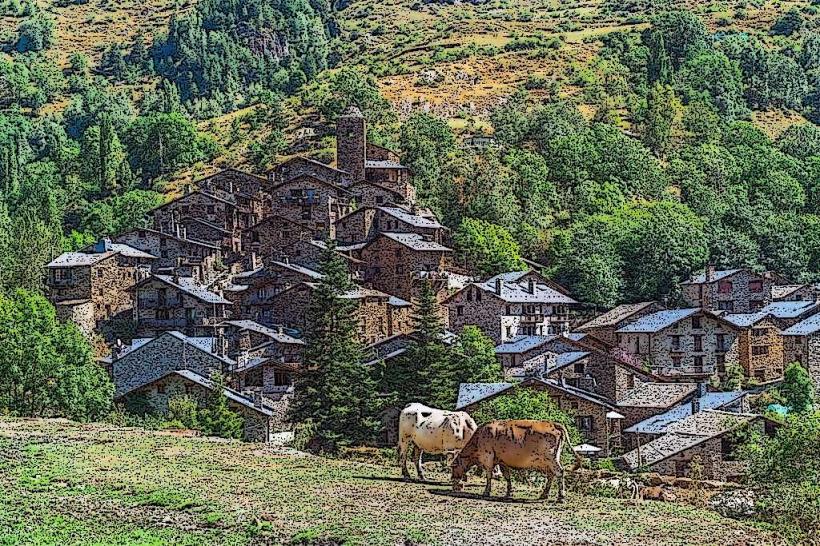Information
Landmark: Sant Julià and Sant Germà ChurchCity: Sant Julia de Loria
Country: Andorra
Continent: Europe
The Church of Sant Julià and Sant Germà (Església de Sant Julià i Sant Germà) is a historical and cultural landmark located in Sant Julià de Lòria, one of the seven parishes of Andorra. This church is a significant religious site, both for its historical importance and architectural features.
Overview of the Church:
Location: The church is situated in the center of the parish, close to the town of Sant Julià de Lòria, and it is easily accessible from the surrounding areas. The church stands on a small hill that offers a scenic view of the surrounding mountains and valley.
Dedication: The church is dedicated to Saint Julian (Sant Julià), the patron saint of the parish, and Saint Germain. Saint Julian was a Christian martyr, often venerated as a protector of travelers, while Saint Germain was a bishop and martyr who lived in the 6th century. These saints are central to the church's history and religious significance.
Architecture:
The Church of Sant Julià and Sant Germà is a fine example of traditional Romanesque architecture, which was common in the region during the 12th and 13th centuries. Here are some key architectural features:
Structure:
The church has a simple yet elegant structure, with a single nave and a semicircular apse at the east end, typical of Romanesque churches. The church is built with local stone, blending harmoniously with the natural landscape.
Bell Tower:
One of the defining features of the church is its bell tower, which rises above the church. The tower is square, and its top is slightly pyramidal, a common feature in Andorran Romanesque bell towers. The bell tower provides a prominent focal point for the church and the surrounding area.
Facade:
The facade of the church is simple but striking, featuring a Romanesque doorway with a rounded arch. Above the door, there is a small window, allowing light to enter the church. The church’s stone walls have a weathered, aged appearance, adding to the historical charm of the structure.
Interior:
Inside, the church is modest but atmospheric, with stone walls, a wooden ceiling, and simple decorations that reflect the Romanesque style. The altar area is adorned with religious artwork, often focused on the saints to whom the church is dedicated. The overall interior is peaceful, providing a place for contemplation and prayer.
Historical Significance:
The Church of Sant Julià and Sant Germà is one of the oldest churches in Andorra, and it has played an important role in the religious and cultural life of the region for centuries. It has been the site of numerous religious ceremonies, including masses, weddings, and baptisms.
The church's location in Sant Julià de Lòria adds to its historical importance as the center of the parish. The parish has always been an agricultural and rural area, and the church has been a focal point for the local community for generations.
Restoration:
Over the years, the Church of Sant Julià and Sant Germà has undergone various restorations to preserve its structure and artwork. These restorations have helped maintain the church's cultural heritage while ensuring that it remains an active place of worship.
Modern-Day Use:
- Today, the Church of Sant Julià and Sant Germà is still an active place of worship for the local community. It is also a popular destination for visitors interested in Andorra’s history, architecture, and religious traditions.
- The church is sometimes used for cultural events, including concerts and festivals, which make use of its historical acoustics and atmosphere.
Surrounding Area:
The church is located in a picturesque area with beautiful views of the surrounding Pyrenees. It is a peaceful location, making it an ideal spot for reflection and appreciation of both nature and history. The surrounding area also features traditional Andorran houses, adding to the charm of the region.
Conclusion:
The Church of Sant Julià and Sant Germà in Sant Julià de Lòria is a beautiful and historic site, blending Romanesque architecture with the natural beauty of the Andorran landscape. It offers a glimpse into the region’s rich religious history and remains an important spiritual and cultural hub for locals and visitors alike. Whether you are interested in religious history, architecture, or simply seeking a peaceful place to reflect, the church is well worth a visit.


